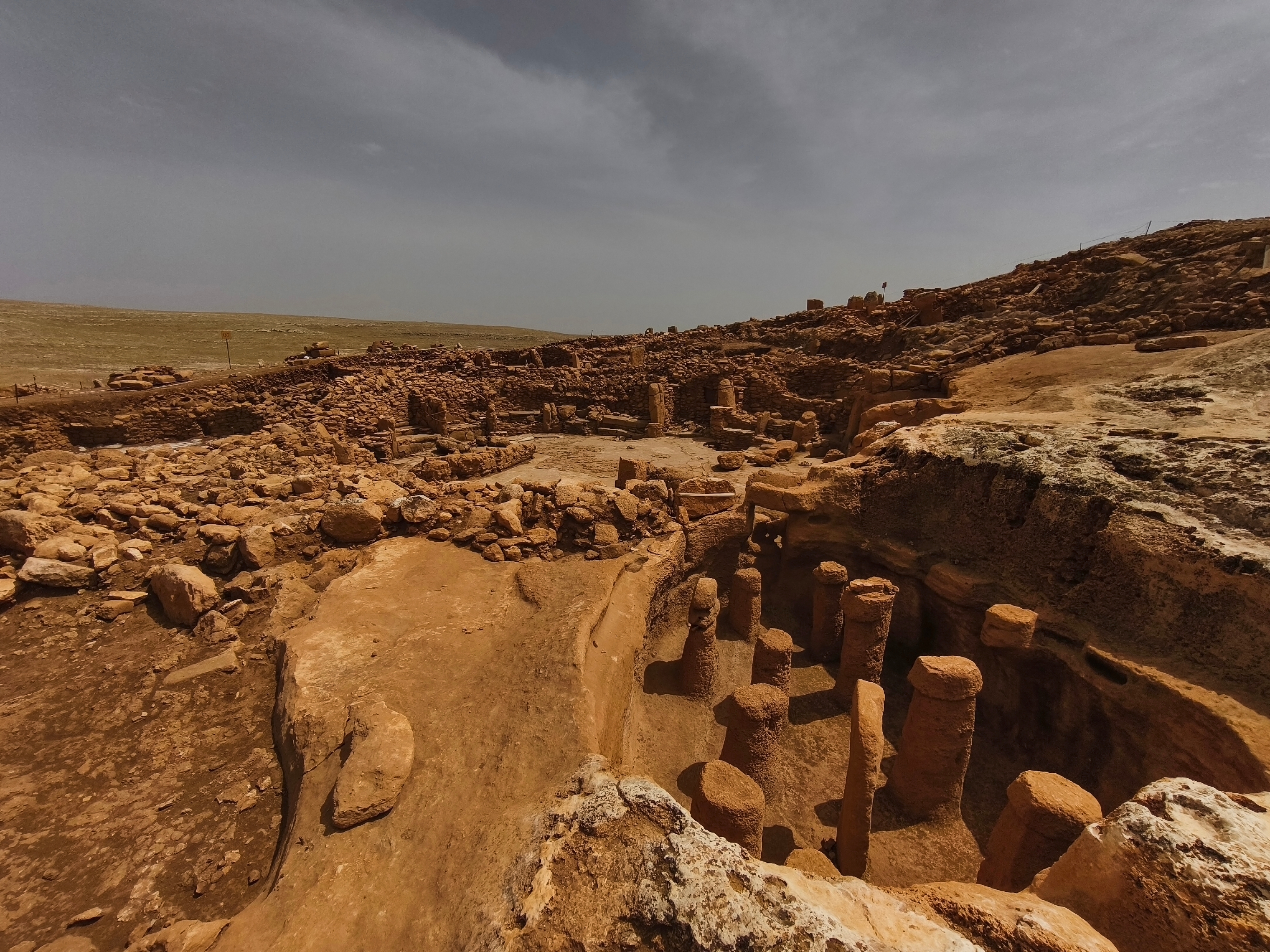While snooping around one of the world’s most remarkable archaeological sites, researchers peeled away layers of dusty earth to reveal a large, stony human face staring back at them. With further digging, archaeologists realized they had uncovered the first human face carved onto a T-shaped obelisk ever found at this magnificent site.
The rest of this article is behind a paywall. Please sign in or subscribe to access the full content.
First discovered in 1997, Karahan Tepe is a sprawling 12,000-year-old site where rows of stone pillars are carved with mysterious human figures and animal depictions, hinting at a lost culture from the dawn of history that thrived long before the pyramids or Stonehenge.
It’s located in southeastern Turkey, near the border of Syria, around 45 kilometers (27 miles) east of its more famous younger sibling Göbekli Tepe. While not as celebrated as its “sister site”, Karahan Tepe shares many similarities and actually predates it by several centuries, dating to around 10,000 BCE.
This is remarkably old for a site of this magnitude. Complex megalithic sites like this are widely thought to have been possible only after a society had mastered agriculture, which emerged 10,000 to 12,000 years ago when humans began domesticating plants and animals, enabling them to produce surplus goods and build more complex communities.

The other tepe: Karahan Tepe in all its semi-excavated glory.
Image credit: Photo Oz/Shutterstock.com
These sites in southern Turkey sit at the very edge of this transition from hunter-gatherers to settled living, marking the dawn of the earliest known periods of human history. It also means that the artistic creations at Karahan Tepe are among some of the earliest known depictions of humans from the Neolithic period, the era after the First Agricultural Revolution.
Karahan Tepe is currently being excavated by Turkey’s Ministry of Culture and Tourism as part of the Stone Hills Project along with nine other sites. Sculptures of humans and animals have been uncovered here before, but the latest finding marks the first time a human face has been discovered on a T-shaped obelisk.
Along with its technical mastery – its sharp features, tall forehead, deep eye sockets, and blunt nose – the 3D depiction of a human face indicates that the people who created the site had some sense of self-expression and recognized the deep power of creating stone reliefs that reflected their transient reality.
“During the excavations carried out as part of our Stone Hills Project, a T-shaped obelisk depicting a human face has been unearthed for the first time. This artifact, found in Karahan tepe, sheds light on human history as the first example of a Neolithic person carving themselves onto a T-shaped column,” Mehmet Nuri Ersoy, Turkey’s Minister of Culture and Tourism, said in a statement. “I thank the excavation team and our General Directorate of Cultural Heritage and Museums who contributed to this important discovery.”
As mentioned, this is far from the first artwork to be discovered. As per a 2011 study, archaeologists have documented 274 architectural finds at the site, at least 266 being pillars that are still standing proud. A handful of the pillars have even been decorated with stunning reliefs depicting humans, snakes, vultures, leopards, and other strange beasts.
Source Link: The First Neolithic Self-Portrait? Stony Human Face Emerges In 12,000-Year-Old Ruins At Karahan Tepe